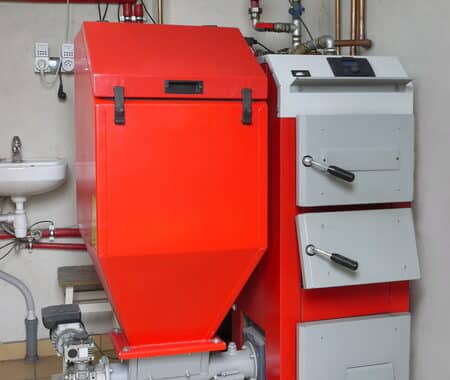GUARANTEED COMFORT & AFFORDABILITY
Whether you need heating, air conditioning, or indoor air quality services, we have an HVAC contractor ready to handle the job.
Working Hours : Monday to Friday (7am - 5pm)

The furnace is the most common way people heat their homes, but boilers in Castle Rock, CO are still found in many house. Boilers function differently from furnaces. Rather than heat up air and then blow it around (which is known as forced-air heating), boilers send out waves of thermal energy from one object to another, transferring heat (which is known as radiant heating). Boilers have several advantages as radiant heaters, including a faster and more even spread of heat.
Boilers also have fewer repair needs than furnaces—but that doesn’t mean they’ll have no repair needs. Unfortunately, not all HVAC technicians will work on boilers. Fortunately, you’ve found a local company that does! We’re happy to deliver high quality repairs to fix your boiler.
Below are several of the more common boiler problems. Call us to resolve these when you notice them.
Boilers circulate water in a closed-loop system where the water never dissipates. Boilers can lose water to leaks, however, which will impair how well the boiler functions and can cause damage to its components. You should never see water leaking out of your boiler at any location. You’ll need technicians to find out the source of the leaks and then have the problem corrected.
A gas boiler that doesn’t have working burners won’t provide any heat to a house. Failed burner ignition can be due to several problems: a blocked gas line, a stuck gas valve, a broken electronic ignition system/failed pilot light (depending on the boiler’s age), and dirt or grime on the burner assembly. No matter the source, please leave any repairs to professionals. Working with a gas-powered appliance is a job for certified technicians only—it’s dangerous for anyone else to attempt this work.
“Kettling” refers to a specific sound a boiler may make: a whistling or popping sound that resembles the noise of a boiling kettle. You might get worried that the boiler is on the verge of exploding, but this almost never happens except in odd cases that always make it to YouTube. Keep in mind that the modern boiler doesn’t actually boil water, only heats it. The kettling is likely occurring because of build-up of sediment on the bottom of the tank or limescale is causing the boiler to overheat. These are both major problems that you’ll want to address right away (so maybe a touch of fear about an explosion isn’t all that bad!).
This is a problem that can strike in our often extremely cold weather. Many boilers today are condensing boilers, which means they put the exhaust gases from the heat exchanger through a second heat exchanger that condenses the gases to pull out more heat energy. These boilers must remove water vapor through a pipe to the outside, and this pipe might freeze. If the pipe is blocked, the boiler will automatically shut down for safety reasons. Don’t try to thaw the pipe on your own. Contact our team and we’ll take care of it for you.
Reach out to Peak Home Performance: Guaranteed Comfort and Affordability.
Leave a Reply